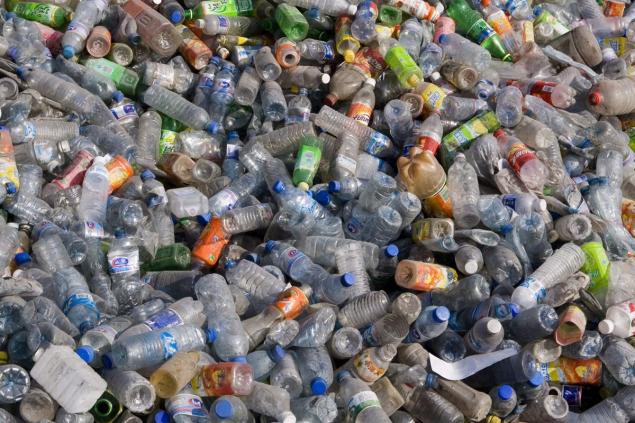Scientists discover plastic eating bacteria
Sat 12 Mar 2016, 13:40:09

A team of scientists in Japan has identified a species of plastic-eating bacteria, isolated from outside a bottle-recycling facility, a finding that might help solve the growing plastic pollution problem.
Poly(ethylene terephthalate), or PET, is a type of polymer used extensively worldwide in plastic products, and its accumulation in the environment has become a global concern.
The proliferation of plastics in consumer products, from bottles to clothing, has resulted in the release of countless tonnes of plastics into the environment.
About 56 million tonnes of PET was produced worldwide in 2013 alone, and the accumulation of PET in ecosystems around the globe is increasingly problematic, researchers said.
To date, very few species of fungi - but no bacteria - have been found to break down PET.
"Because the ability to enzymatically degrade PET has been thought to be limited to a few fungal species, biodegradation is not yet a viable remediation or recycling strategy," researchers said.
Researchers, including those from Kyoto Institute of Technology and Keio University in Japan collected 250 samples of PET debris from outside a bottle-recycling facility and screened for bacterial candidates that depend on PET film as a primary source
of carbon for growth.
of carbon for growth.
"By screening natural microbial communities exposed to PET in the environment, we isolated a novel bacterium, Ideonella sakaiensis 201-F6, that is able to use PET as its major energy and carbon source," the researchers said.
The bacterium could almost completely degrade a thin film of PET after six weeks at a temperature of 30 degrees Celsius.
When grown on PET, this strain produces two enzymes capable of hydrolysing PET and the reaction intermediate, mono(2-hydroxyethyl) terephthalic acid.
Both enzymes are required to enzymatically convert PET efficiently into its two environmentally benign monomers, terephthalic acid and ethylene glycol.
Further investigation identified an enzyme, ISF6-4831, which works with water to break down PET into an intermediate substance, which is then further broken down by a second enzyme, ISF6-0224.
These two enzymes alone can break down PET into its simpler building blocks, researchers said. These enzymes seem to be highly unique in their function compared to the closest related known enzymes of other bacteria, raising questions of how these plastic eating bacteria evolved, researchers said.
The research was publised in the journal Science.
No Comments For This Post, Be first to write a Comment.
Most viewed from Specials
Most viewed from World
AIMIM News
Latest Urdu News
Most Viewed
May 26, 2020
Do you think Canada-India relations will improve under New PM Mark Carney?
Latest Videos View All
Like Us
Home
About Us
Advertise With Us
All Polls
Epaper Archives
Privacy Policy
Contact Us
Download Etemaad App
© 2025 Etemaad Daily News, All Rights Reserved.






















.jpg)
.jpg)
.jpg)

















